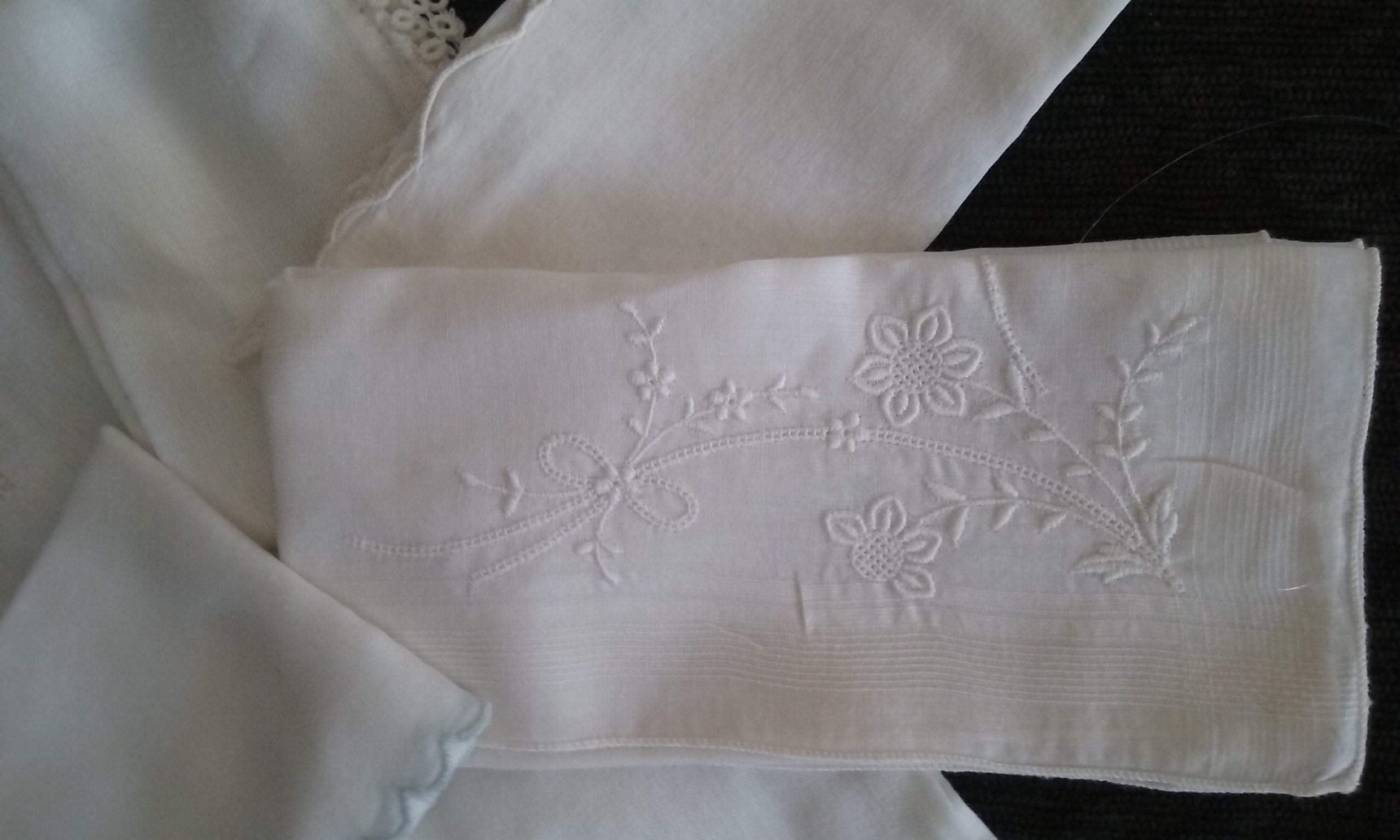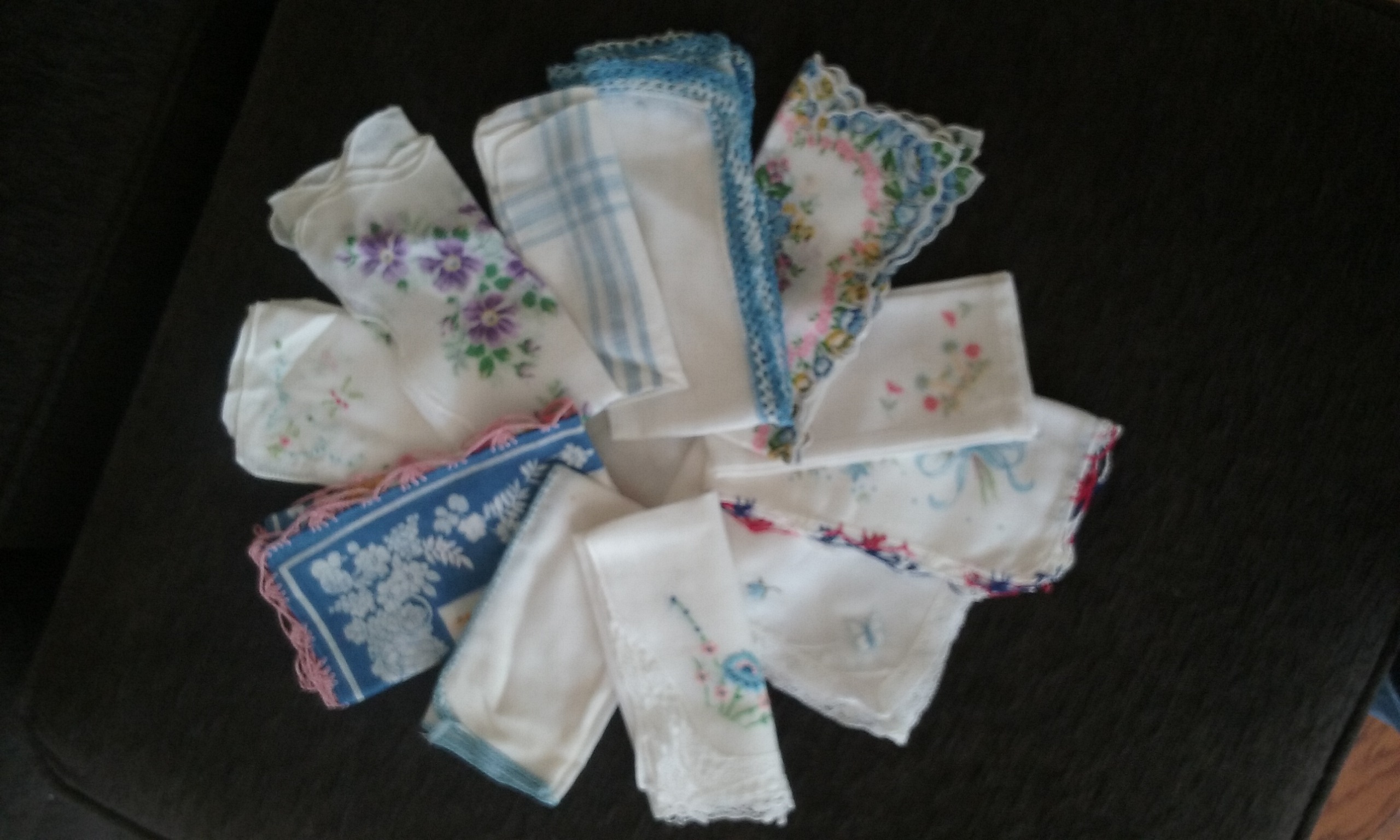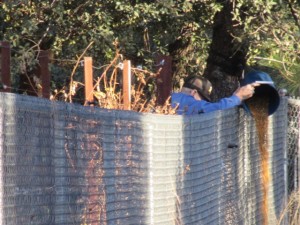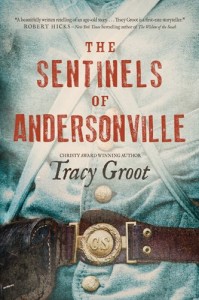Back in the forties, autumn saw my heroines harvesting the last produce from their victory gardens, hauling burlap bags of potatoes and carrots to the hideaway under the windmill, drying walnuts to pick through on winter nights, and stripping dry bean and pea pods to save for next year’s seed.

With more time ahead for indoor work, perhaps some women looked forward to sewing and mending. Addie didn’t, that’s for sure. But she did enjoy knitting sweaters for the soldiers, and even tried her hand at fine stitching.
Recently, I found an amazing cache of someone’s hankies from that bygone era at a garage sale. The more I consider them, the more they overwhelm me with a sense of all the time someone spent stitching their decorative touches.

Can you imagine the hours this required? And how about these?
So many colors … so much creativity. Picture some weary woman crafting these in her “leisure hours” after a full day of hard physical labor.
Those of us with limited stitching skills (I sew on buttons and do hemming. Period), stand in awe. Besides fashioning these gems, the Greatest Generation women and their forebears carefully laundered and ironed these useful items, these tear catchers.
How things have changed, eh? Paper tissues catch our tears during life’s ups and downs. I’ve been going through some changes too. Yep. Because of an eye challenge, my computer time is now greatly limited – yes, I’m looking into one of those new-fangled speak-into-your-computer programs.
The past few weeks may have found me remiss with online duties, and that may continue. But stories still bounce around in my head, and the sequel to In Times LIke These will release with Lighthouse Publishing of the Carolinas in February 2017.
Several readers have encouraged me lately with their reviews of Addie’s story – one woman commended me for not giving Addie an easy way out. I try to hard to avoid pat answers, which really don’t help struggling people much. In her words:
I appreciated that you didn’t have easy answers for Addie’s troubles. I tend to shy-away from Christian fiction for fear of the platitudes. I have recommended this read to a couple of my friends.
So satisfying – words from readers mean so much! For those who’d like to communicate with me, I check my e-mail address gkittleson@myomnitel.com, most often. Thank you.
And thanks for your patience, and oh! I’ve shared the title of the sequel numerous times, but it’s been changed to With Each New Dawn.
As fall transforms into winter, may you keep discovering new reading delights!











